Dementia: New way of learning about everyday difficulties
- Published
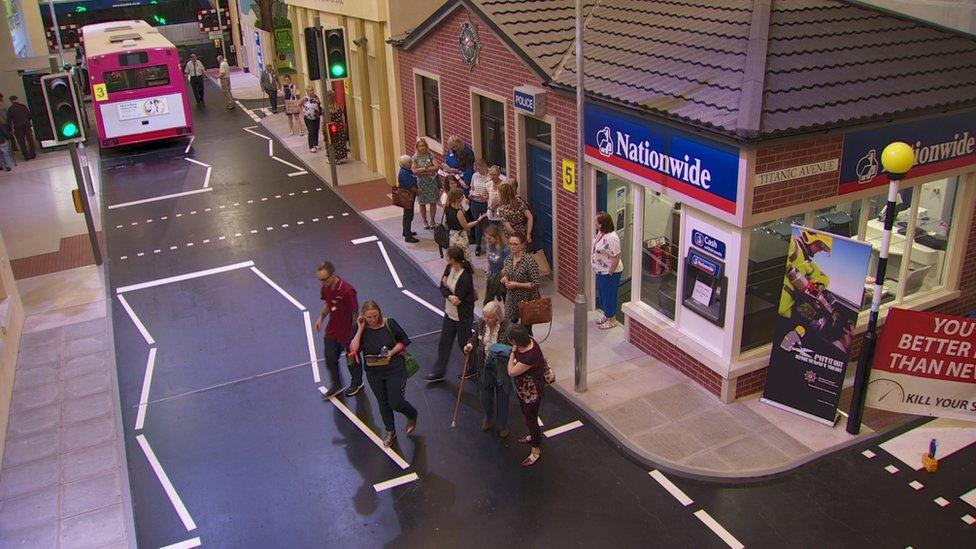
It's a town centre unlike any other. About 75 people are wandering through shops made from wood and plaster.
The group is diverse. It includes members of the fire service, the voluntary sector, carers and the general public.
Crucially, there's a broad range of ages. Most of them are affected by dementia in some way.
The event in east Belfast is designed to better educate and support them.
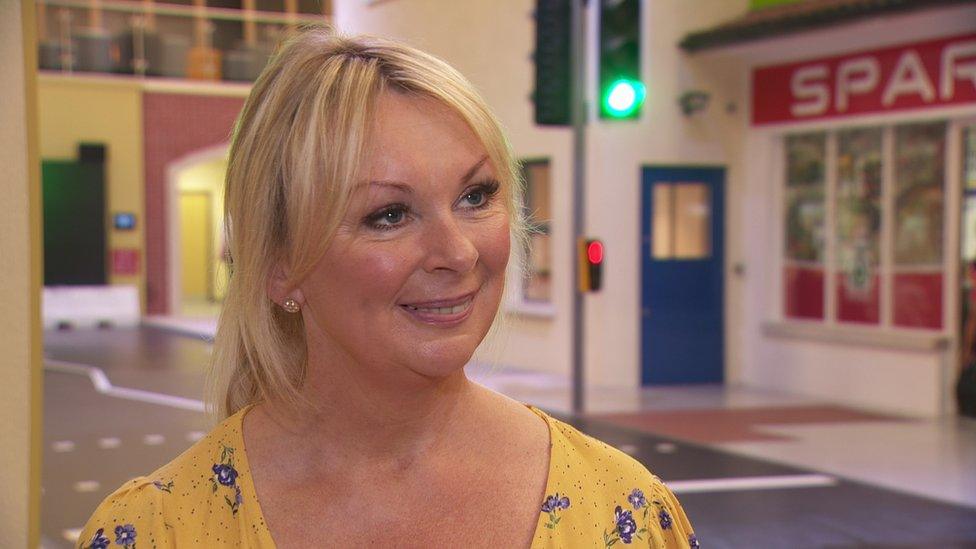
Help is available for people caring for loved ones with dementia, says Rebecca Dorrian
Small groups are shown around the various mock shops, a bank, a courthouse and even a full-size bus.
It is designed to replicate scenes where many dementia sufferers and their carers often find themselves.
Here, the groups are given talks and watch videos about experiences that, for some, are already familiar.
But there are some people attending who are not affected by dementia.

Those who visit the mock town centre say it gives them a new perspective on dementia
Linda Armitage, from the East Belfast Community Development Agency, says the event is aimed at everyone.
"This experience helps people understand what it's like maybe for someone who's living with dementia and needs to go to the shop or local amenities.
"Then they maybe can be a little kinder to those who are experiencing going to the bank, getting a library book and living in the house."
One attendee is an elderly man who cares for his wife, who has dementia.
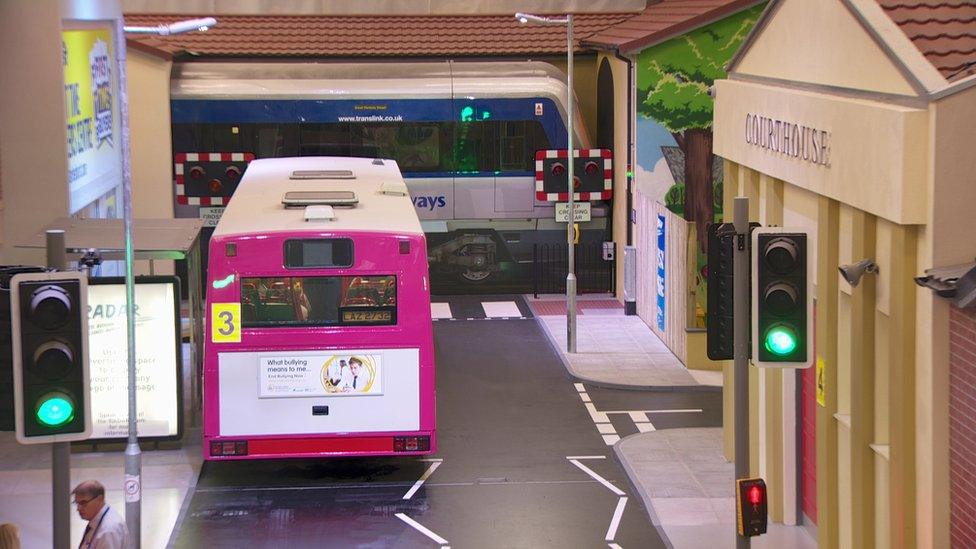
Everyday tasks can be a challenge for people with dementia, say support charities
He says that although he might not be able to pass on new information to his wife, he's learned some new ideas from the event that he can share with other people affected by the condition.
Rebecca Dorrian, from the Belfast Health and Social Care Trust, says carers' can be dealing with huge amounts of stress and people often don't know what support is available.
She lists numerous options, including needs assessments and many dementia-friendly events, like arts workshops.
Rebecca adds that carers' support groups and education programmes are also widely available.
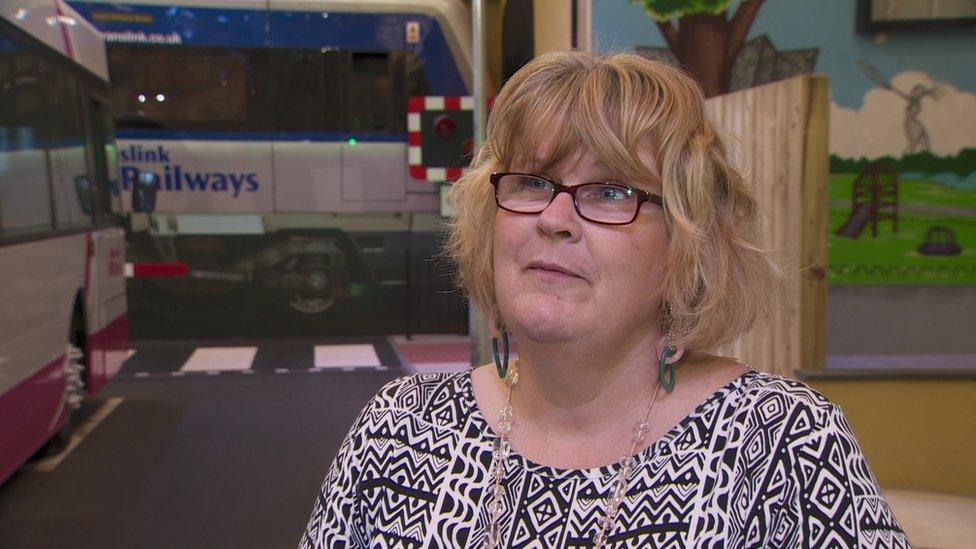
The event could help people to understand what it is like to live with dementia, says Linda Armitage
After two hours the event comes to a close. The doors on the mock shops are shut and the last of the passengers leave the bus stationed on Main Street.
It's been a morning of learning but, perhaps more importantly, of shared stories.
In some ways, the event may have been a form a respite itself.
But for those affected by dementia, it's another day of endless and often complex challenges caused by the condition.
- Published23 January 2019
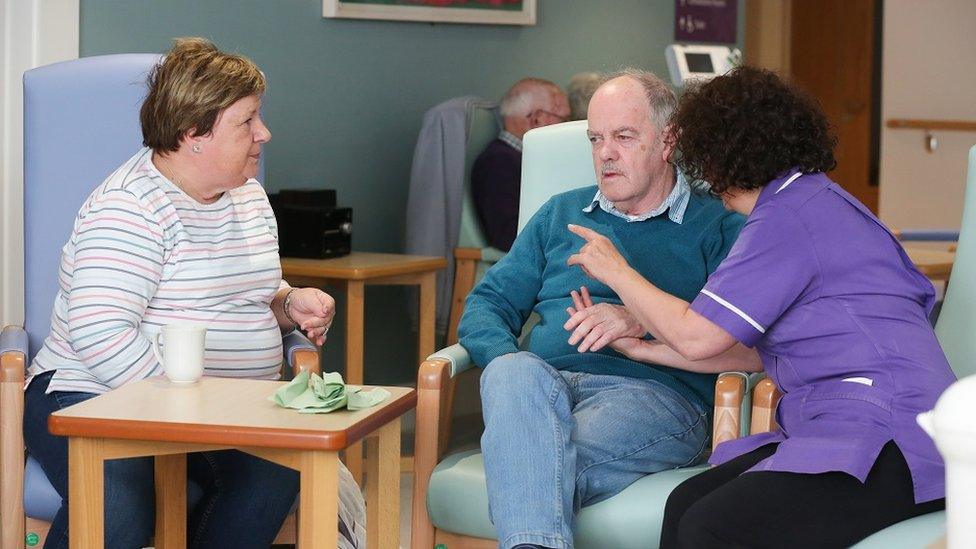
- Published1 January 2019
